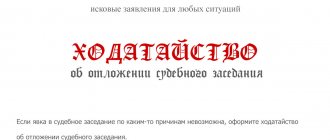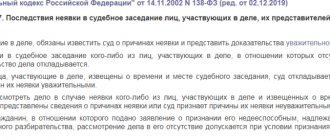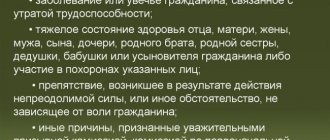Why is protocol important?
The Protocol is a significant document for a number of reasons. Of decisive importance is that this document stipulates:
- acts issued by the court;
- all significant actions performed during the trial by all its participants;
- evidence in the case.
In simple words, the progress of the trial must be recorded. In fact, this document is one of the legal guarantees of the fulfillment of subjective rights by participants in judicial proceedings. Taking into account the information contained in the protocol, the validity and legality of the court's decision is assessed. It is also of great importance because it provides the opportunity for higher authorities to control the proceedings.
A special court employee is responsible for keeping the protocol. As a rule, this is the secretary. He should not be interested in the outcome of the trial. Each participant in the process has the right to challenge the secretary.
What is included in the protocol?
According to Article 259 of the Code of Criminal Procedure of the Russian Federation, a protocol is a document certifying the commission or non-commission of any actions by the participants in the court. Since this document is one of the main documents, it should contain clear and concise information about what happened during the meeting.
Stages of criminal proceedings
The protocol is important written evidence. In this regard, the procedure for maintaining it and its form must clearly comply with the norms of the current legislation of the Russian Federation, in particular, Article 259 of the Code of Criminal Procedure of the Russian Federation. Considering an example of a protocol of a court hearing in a criminal case, you can understand that it contains the following data:
- date and place of the trial;
- start and end times of the process;
- the name of the court hearing the criminal case;
- composition of the court and information about the author of the document;
- name of the case;
- data on the appearance of persons participating in the process;
- information that the persons participating in the case were explained their procedural rights and obligations;
- the order of the presiding judge and the rulings made during the hearing;
- petitions and statements of the participants in the case;
- witness testimony, expert explanations, consultations and explanations of other involved specialists;
- information about the written evidence read out;
- information about the examination of physical evidence;
- content of the public prosecutor's conclusions;
- content of the debate;
- information about the announcement and explanation of the content of the court decision;
- information about the deadlines for appealing a decision made by the court;
- information about the possibility of familiarizing yourself with the document and submitting comments on it;
- information about the use of technical means. An example of this is video or audio recording devices;
- Date of preparation.
Without exception, all court hearings in a criminal case are recorded. The protocol must be signed by the chairman of the court and the secretary who compiled it no later than 72 hours from the end of the hearing.
Questioning in accordance with Article 86 of the Code of Criminal Procedure of the Russian Federation
On recommendations for the preparation by lawyers of the chamber of a protocol of interviewing persons in accordance with Art. 86 Code of Criminal Procedure of the Russian Federation.Decision of the ANSP Council of May 28, 2004
Decided: To publish in the newspaper “Nizhny Novgorod Advocate” methodological recommendations on the implementation of the rights of a lawyer provided for in clause 2, part 1, article 53, part 3, article 86 of the Code of Criminal Procedure of the Russian Federation and clause 3, art. 6 of the Federal Law “On advocacy and the legal profession in the Russian Federation”, approved by the Council of the Federal Chamber of Lawyers of the Russian Federation, and the protocol of interviewing persons in accordance with Art. 86 of the Code of Criminal Procedure of the Russian Federation, recommended by the Council of the Chamber.
Sample survey protocol
Methodological recommendations for the implementation of the rights of a lawyer provided for in paragraph 2 of part 1 of Art. 53, part 3 art. 86 of the Code of Criminal Procedure of the Russian Federation and paragraph 3 of Art. 6 of the Federal Law “On Advocacy and the Bar in the Russian Federation” was approved by the decision of the Council of the FPA of the Russian Federation dated April 22, 2004, Minutes No. 5
The current criminal procedural legislation grants the defender of the accused (suspect) certain rights to collect evidence. In accordance with paragraph 2 of part one of Article 53 of the Code of Criminal Procedure of the Russian Federation, the defense attorney is given the right to collect and present evidence necessary to provide legal assistance in the manner established by criminal procedure legislation. Part 3 of Article 86 of the Code of Criminal Procedure of the Russian Federation provides a list of procedural actions aimed at collecting evidence in the course of providing legal assistance in a criminal case, which the defense attorney has the right to carry out. They essentially differ from the actions carried out by the preliminary investigation authorities and the court when collecting evidence. These are: obtaining items, documents and other information (clause 1), interviewing persons with their consent (clause 2) and requesting certificates, characteristics and other documents from various bodies, associations and organizations (clause 3). Similar rights are granted to the lawyer pp. 1-3 parts 3 tbsp. 6 of the Federal Law of the Russian Federation “On advocacy and advocacy in the Russian Federation” (hereinafter referred to as the Federal Law). When developing and adopting the current Criminal Procedure Code, the legislator, having established the indicated means of collecting evidence in a criminal case, did not establish a procedural procedure for carrying out these actions, which in practice causes controversy and entails unreasonable decisions to refuse to include the evidence collected by the lawyer in the case materials from the outside. interrogators, investigators, prosecutors and courts, and assessing them in conjunction with other evidence collected in the case. At the same time, as the practice of advocacy has shown, the considered methods of collecting evidence are used by lawyers quite widely, and therefore there is a need to give these methodological recommendations. When collecting evidence, you should first of all take into account the requirements of Art. Art. 74 and 75 of the Code of Criminal Procedure of the Russian Federation, establishing the concept, properties and types of evidence. In addition, it is necessary to keep in mind the forms of their procedural consolidation. Since the current Code of Criminal Procedure of the Russian Federation does not provide for procedural documents that would record the actions and decisions of a lawyer during the collection of evidence (resolution, protocol), they must comply in form and content with the requirements of Art. 84 Code of Criminal Procedure of the Russian Federation. Recommended procedure for recording the actions of a lawyer in collecting evidence in a criminal case and their results 1. Obtaining objects, documents and other information In criminal proceedings, preliminary investigation bodies receive objects relevant to the case through seizure. The law does not grant such authority to a lawyer. Therefore, if necessary, it is recommended to obtain such items only on a voluntary basis and based on the consent of the owner. It appears that for this purpose the lawyer needs to obtain a written statement from the owner of the item. The application is recommended to reflect, in addition to the mandatory details, the following: when and under what circumstances he received this item, its distinctive features, why he wants to hand it over to a lawyer and for what purposes, whether this delivery was made voluntarily and whether him any coercive measures in order to obtain the item. If necessary, the signature of the person submitting the application is recommended to be notarized. The procedure for the voluntary transfer of an item from the owner to a lawyer can be carried out in the presence of at least two citizens, who must attest to the fact and results of the voluntary transfer of the item. If it is necessary to use special knowledge when receiving or inspecting an item, a specialist may be invited to participate in this procedural action. This authority is established in clause 3, part 1, art. 53 Code of Criminal Procedure of the Russian Federation. The progress and results of obtaining the item can be recorded using photo, audio and video equipment. After receiving the item, the lawyer, in the presence of its owner and witnesses, if necessary with the participation of a specialist, must examine the item in detail and identify its characteristic features and traces. At the end of this procedural action, it is necessary to draw up a document that reflects the grounds, progress and results of receiving the item. It seems that such a document could be the “Protocol for Receiving an Item.” It is recommended to indicate the following information in the act: the time and place of receipt of the item, who carried out this action, on the basis of which the item was received, with the participation of which persons the item was received and inspected, what technical means were used in this case, what item was received, the results his inspection, whether the item was packaged and how, how the item was sealed. All participants in the issuance and receipt of the item must be familiarized with the act; after familiarization, all participants are explained the right to make additions and comments, after which they sign the act. The act must be accompanied by the received item, audio, photo and video materials recording the progress and results of its implementation, which is noted in the act itself. Considering the powers of a lawyer to obtain documents and other information that may be evidence in a criminal case, it is obvious that in this case we mean cases where they are in the custody or possession of citizens or commercial organizations that are not required by law to provide documents or copies thereof at the request of lawyers in accordance with clause 3, part 3, art. 86 Code of Criminal Procedure of the Russian Federation. The procedural procedure for receiving them should be the same as for receiving items, as described above. 2. Survey of persons with their consent It should be noted that there is a significant number of publications on this issue in various printed publications.1 Survey, as provided for in paragraph 3 of Part 3 of Art. 86 of the Code of Criminal Procedure of the Russian Federation, is carried out only with the consent of the person whom the need arose to interview. The survey itself, it seems, can be framed in the form of answers to specific questions, or in the form of a free story with clarifying questions at the end. The question of the possibility of committing the action in question after the interrogation of the same person by the investigator as a witness, victim, accused or suspect deserves special attention. It seems that such an interrogation is possible only if during their interrogations all the issues that are essential to the case were not clarified. It is proposed to record the progress and results of the survey in a special document, for example, calling it “Protocol of interviewing a person with his consent.” It is not recommended to call it a protocol, because The Code of Criminal Procedure of the Russian Federation provides for the preparation of such a procedural document based on the results of procedural actions carried out by investigative authorities. When drawing up an act, it can be classified as other documents, as a type of evidence provided for in paragraph 6 of Part 2 of Art. 74 of the Code of Criminal Procedure of the Russian Federation and meeting the requirements of Art. 84 of the same Code. The act must reflect the following data: information about the lawyer who conducted the survey, indicating the legal education, the bar association of the constituent entity of the Russian Federation in which this lawyer is listed, his number in the relevant register and the number of the order on the basis of which he carries out the assignment in this case; last name, first name, patronymic, date and place of birth of the person being interviewed, his place of residence, place of work, position, home and work telephone numbers, information about documents proving his identity, relationship to the accused and the victim; mark indicating consent to the survey. The act of interrogation, it seems, must meet the requirements for the protocol of interrogation of a witness (Articles 189-191 of the Code of Criminal Procedure of the Russian Federation). 3. Request for certificates, characteristics, and other documents from state authorities, local governments, public associations and organizations that are obliged to provide the requested documents or copies thereof. The considered norm of the Code of Criminal Procedure of the Russian Federation has been used previously. However, such a right, outside of participation in legal proceedings in a criminal case, was exercised in the form of sending a petition or request on behalf of the bar association or legal advice, which was signed by the relevant head. The current Code of Criminal Procedure of the Russian Federation grants this right directly to the lawyer. It is recommended to exercise this right by sending it to the persons specified in Art. 86 of the Code of Criminal Procedure of the Russian Federation, bodies and organizations make requests for the purpose of obtaining the documents specified therein. When sending a request, it is permissible to use legal education forms of the established form. If necessary, they can be certified by the seal of the relevant legal entity. Requests requiring necessary documents must be motivated. It is also advisable to indicate the time frame for resolving it with reference to the current legislation on the procedure for resolving citizens' appeals. The question of the procedure for attaching to the materials of a criminal case received in accordance with paragraph 3 of Part 3 of Art. 86 of the Code of Criminal Procedure of the Russian Federation of objects, documents, certificates and other information. For this purpose, it is recommended to send a written reasoned petition to the preliminary investigation authorities or to the court, in which the following documents should be indicated as an attachment: an application for the voluntary release of an item, relevant acts of receipt, the items themselves, documents, certificates and other information. In case of refusal to accept an application, it should be borne in mind that in accordance with Art. 120 of the Code of Criminal Procedure of the Russian Federation in any case, even if it is refused, is subject to inclusion in the materials of the criminal case, and since the received item, as well as certificates, documents and other information are annexed to the petition, they are subject to inclusion in the same materials of the case. 1In preparing these recommendations, the following were used: - scientific and practical commentary on the Federal Law “On Advocacy and the Bar in the Russian Federation”, ed. D.N. Kozak, M., “Statute”, 2003; — commentary on the Federal Law “On Advocacy and the Legal Profession in the Russian Federation,” ed. A.V.Grinenko, M., “Code” 2003; — Parshutkin V.V., “A lawyer’s survey of persons with their consent,” newspaper of the international union (commonwealth) of lawyers “Advocate”, No. 11(148), M., 2003.
Familiarization with the protocol
According to the law, familiarization with the minutes of court hearings in criminal cases is available to all participants in the process. To gain access to a document, you must submit a petition within three days from the end of the meeting. The designated period may be restored if the application was not submitted on time for valid reasons. This request cannot be granted if the criminal case has already been sent to a higher authority.
The petition is considered by the presiding judge. The review period is 3 days from the date of application. The time to familiarize yourself with the document is determined on an individual basis. It all depends on the amount of recorded information. The period provided for familiarization cannot be less than 5 days. If the time provided was not enough for familiarization, then the interested person has the right to submit a request to extend the period.
A participant in a court case in a criminal case has the right to submit an application for the production of a copy of the described paper. This petition is also considered no more than 72 hours, and is most often granted by the court. In this case, a copy is made at the expense of the applicant.
Article 259 of the Code of Criminal Procedure of the Russian Federation. Protocol of the court session (current version)
1. During each court hearing, minutes are kept. During the court hearing of the courts of first and appellate instances, a protocol is drawn up in writing and recording is carried out using audio recording devices (audio recording). When considering a criminal case in a closed court session in the cases provided for in Article 241 of this Code, the use of audio recording devices is not permitted.
2. The protocol can be written by hand, or typed, or prepared using a computer. To ensure the completeness of the protocol when maintaining it, shorthand recording, as well as technical means, can be used.
3. The minutes of the court session must indicate:
1) place and date of the meeting, its start and end time;
2) what criminal case is being considered;
3) the name and composition of the court, information about the assistant judge, secretary, translator, prosecutor, defense attorney, defendant, as well as the victim, civil plaintiff, civil defendant, their representatives and other persons summoned to court;
4) information about the identity of the defendant and the measure of restraint chosen in relation to him;
5) the actions of the court in the order in which they took place during the court hearing;
6) statements, objections and petitions of persons participating in the criminal case;
7) rulings or decisions made by the court without retiring to the deliberation room;
9) information on explanations to participants in criminal proceedings of their rights, duties and responsibilities;
10) detailed content of the testimony;
11) questions asked to the interrogated and their answers;
12) the results of inspections and other actions to examine evidence carried out at the court hearing;
13) circumstances that participants in criminal proceedings ask to be included in the protocol;
14) the main content of the speeches of the parties in the judicial debate and the last word of the defendant;
15) information about the announcement of the verdict and an explanation of the procedure for familiarizing yourself with the minutes of the court hearing and making comments on it;
16) information on the explanation of the acquitted and convicted persons of the procedure and deadline for appealing the verdict, as well as on the clarification of the right to petition for participation in the consideration of a criminal case by the court of appeal.
4. The protocol also indicates the measures taken against the person who violated order at the court hearing.
5. If during the trial photography, audio and (or) video recording, filming of interrogations, broadcast on radio, television or on the Internet were carried out, then a note about this is made in the minutes of the court session. In this case, photographic materials, audio and (or) video recordings, and filming are attached to the materials of the criminal case. When broadcasting a court session, the minutes of the court session also indicate the name of the media outlet or website on the Internet through which the broadcast was carried out.
6. The protocol must be prepared and signed within 3 days from the date of the end of the court session by the presiding officer and the secretary of the court session, and if the presiding officer has entrusted the keeping of the protocol to an assistant judge, by the presiding officer and the assistant judge. The protocol during a court session can be prepared in parts, which, like the protocol as a whole, are signed by the presiding officer and the secretary, and if the presiding officer entrusts the keeping of the protocol to an assistant judge, by the presiding judge and the assistant judge. At the request of the parties, they may be given the opportunity to familiarize themselves with parts of the protocol as they are prepared.
7. A request for familiarization with the protocol and audio recording of the court session is submitted by the parties in writing within 3 days from the date of the end of the court session. This period may be restored if the application was not submitted for valid reasons. The petition is not subject to satisfaction if the criminal case has already been sent to the appellate instance or, after the expiration of the period provided for the appeal, is in the execution stage. The presiding officer provides the parties with the opportunity to familiarize themselves with the protocol and audio recording of the court session within 3 days from the date of receipt of the petition. The presiding officer has the right to provide the opportunity to familiarize himself with the protocol and audio recording to other participants in the trial at their request and insofar as it relates to their testimony. If, due to objective circumstances, the protocol of the court session was prepared after 3 days from the date of the end of the court session, then the participants in the trial who filed petitions must be notified of the date of signing the protocol and the time when they can familiarize themselves with it. The time for familiarization with the protocol and audio recording of the court session is set by the presiding officer depending on the volume of the specified protocol and audio recording, but cannot be less than 5 days from the start of familiarization. In exceptional cases, the presiding officer, at the request of a person familiarizing himself with the protocol and audio recording, may extend the established time. If a participant in the trial clearly delays the time of familiarizing himself with the protocol and audio recording, the presiding judge has the right, by his decision, to set a certain period for familiarizing himself with them.
8. Copies of the protocol and audio recordings are made at the written request of a participant in the trial and at his expense.





